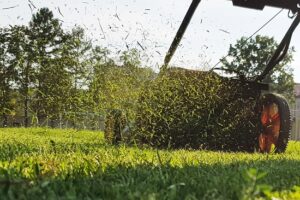 Mowing your lawn is one of the most time-consuming lawn care task. Mowing your lawn will make your home look great and help your grass grow at its best.
Mowing your lawn is one of the most time-consuming lawn care task. Mowing your lawn will make your home look great and help your grass grow at its best.
There are many factors that affect how often you mow. You will need to consider the following factors: rainfall, grass type, fertilization, time available, and how long you can spare. These are some guidelines that will help you determine the best mowing time for your lawn.
Lawn Care Tips
Different Types of Turf
Grasses are green living plants that are often grouped together to make a single entity, called turf. This makes up a lawn. Turf can grow at different rates depending upon the type of grass, climate and amount of shade. Some varieties prefer to be cut higher than others, while others prefer to stay closer to the soil. You can determine the height of your turf’s active growth to help you decide how often to mow it to keep it uniform.
Cool-season grasses
Cool season grasses like fescues, bluegrass, and ryegrasses grow quickly in spring and autumn. They will need to get cut more frequently when the rainfall is higher. Broadleaf weeds can be controlled by mowing at the highest height possible during spring months. In the summer heat, grass growth will slow down and will require less mowing.
Warm-season grasses
In states that have hot summers and mild winters, warm-season grasses are more common in the southwest and southern hemispheres. St. Augustine Bermuda, Buffalo, and Zoysia grasses thrive in the heat of summer, but they don’t overwinter like cool-season grasses. These grasses require more frequent mowing during periods of heavy rainfall.
Shade grasses
Many types of grass thrive in sun. It is difficult to grow grass in the shade. Although special mixes are available from most retailers that sell grass seed for shade, germination is dependent on the light which makes it difficult to maintain a lawn in shade. These conditions are generally better for cool-season grasses. You might want to mow higher and less often in these areas.
New lawn
Once a lawn is active, it should be mowed as you would a mature lawn. It is best to not mow too soon as it can cause damage. However, it is fine to start cutting new grass after it has reached the ideal height for its type.
The 1/3 Rule
The stems protect grass blades from damage when it starts actively growing. The stems can be damaged if you cut your grass too low and the grass will die.
The blades will begin to flower after a few months. As new leaves begin to grow, the stem expands to accommodate them. Roots also start to spread. To remove as little as one-third to one-half of the new leaves, raise your mower’s height.
This will prevent you from making a common error when it comes to lawn care in Myrtle Beach: mowing too closely. Cutting the grass below its optimal height can hinder root development, which can lead to weed infestation, drought damage, and injury.
You should mow the grass less often if it grows above the recommended height. You may need to repeat this lawn maintenance process several times, taking a few days off between each pass to let the turf recover.
Call Conner’s Lawn Care Service now if you need expert help in taking care of your lawn.
Conner’s Lawn Care Service
Myrtle Beach, SC
843-504-4901
http://connerslawncare.com/